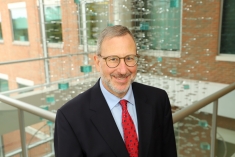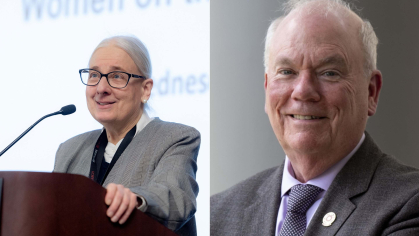Mitchel Rosen, associate professor in the Department of Urban-Global Public Health and director of the Center for Public Health Workforce Development at the Rutgers School of Public Health, has been elected as a fellow to the Collegium Ramazzini.
“This is a very huge honor, and I’m really excited to be part of such an amazing group of international experts on occupational safety and health,” said Rosen.
The Collegium Ramazzini is an international scientific academy comprised of physicians and scientists from 35 countries headquartered in the Castello di of Bentivoglio, near Bologna, Italy. The Collegium Ramazzini was founded in 1982 by Professor Irving J. Selikoff of the Mount Sinai School of Medicine and Professor Cesare Maltoni of the University of Bologna. It is named in honor of Dr. Bernardino Ramazzini (1633-1714), Professor of Medicine at the Universities of Modena and Padova, the father of occupational medicine.
The Collegium Ramazzini is an independent academy comprised of 180 internationally renowned occupational and environmental health experts. It aims to work towards solving occupational and environmental health problems.

“I’d also like to thank the entire Center for Public Health Workforce Development team for their efforts, which enables us to accomplish our mission of training the public health workforce,” added Rosen. “I could not do it without you!”
The Collegium Ramazzini assesses present and future risks of injury and disease attributable to the workplace and the environment. It focuses especially on the identification of preventable risk factors and transmitting its views on these hazards and their prevention to policy-making bodies, authorities, agencies, and the public.
Mark Robson, dean of Rutgers School of Graduate Studies and a Ramazzini Fellow, was honored to nominate Rosen for membership in the Collegium. Robson noted that “Dr. Rosen’s work at Rutgers has had significant global impacts and exemplifies the mission and the goals of the Collegium.”


